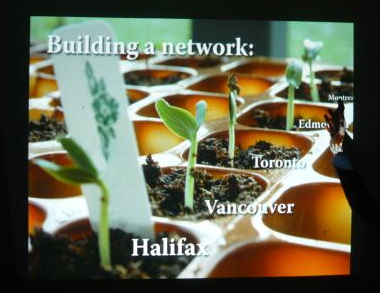We have to find the Cracks in the System
We have to find the Cracks in the System

In an interview on a busy Toronto street, the Vancouver Media Co-op caught up with activist and physician Manuel Rozental to ask about the outcome and importance of the March 14 legislative elections in Colombia. He explains that while party representation has changed, Alvaro Uribe's ideas have remained in power. Paramilitary-death squad connected parties retained a stranglehold on the parliament, and leftist opposition Polo Democratico was weakened by a proposed alliance with the right.
“The situation in Colombia now is that we will have another four years of delivering the country to transnational corporations, of rampant corruption and delivering the national resources to private hands, like Agro-Ingreso Seguro, the huge scandal where the funding for the peasants was transferred to drug dealers and beauty parlours,” said Rozental.
“Finally, we will have, most likely and this is the most frightening scenario, we’re going to get closer and closer to an armed conflict in the region, an armed conflict from Colombia against Venezuela and Ecuador,” he said. “Colombia has become a threat for the whole region.”
Rozental predicted that former Defense Minister Juan Manuel Santos, responsible for the false positive scandals, will become the next president of Colombia. “Resistance in Colombia is going to become even harder, and stronger,” he said.
“We’ll have more war, we’ll have more polarization – you’re either with FARC [the Revolutionary Armed Forces of Colombia] or with the government- we’ll have more delivery of the country to transnational corporations, and the Colombia model will continue to be exported, as is the case in Mexico today,” he said.
Rozental explained the geography of resistance in Colombia, and the carrot and stick policy of the Colombian state.
Rozental linked Indigenous candidates elected to parliament to the rightwing project, and to the disintegration of the social movements, and he said that there is a common reading of the electoral process in Colombia. “They used to steal some leaders of social movements. Now, the model, the strategy, so refined, [is] that they are stealing entire movements. They are being swallowed,” he said.
“The economic model is dead, it’s finished, it’s in a crisis that it won’t come out of,” said Rozental. The project of social movements, he says, will be to work to change the entire system, before the earth can no longer support us.

